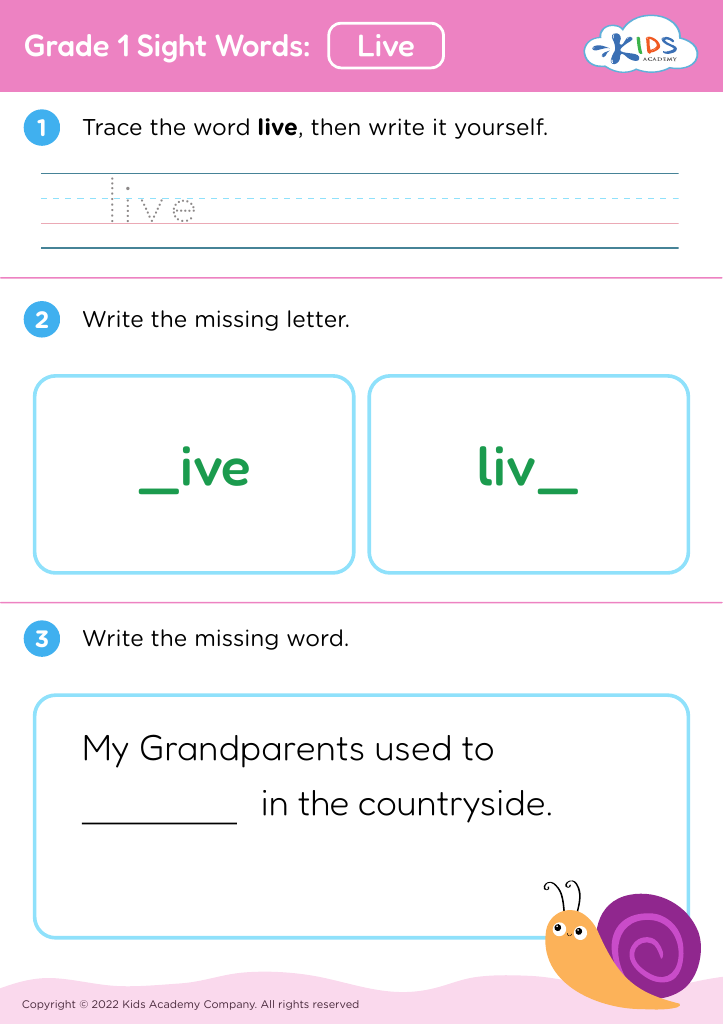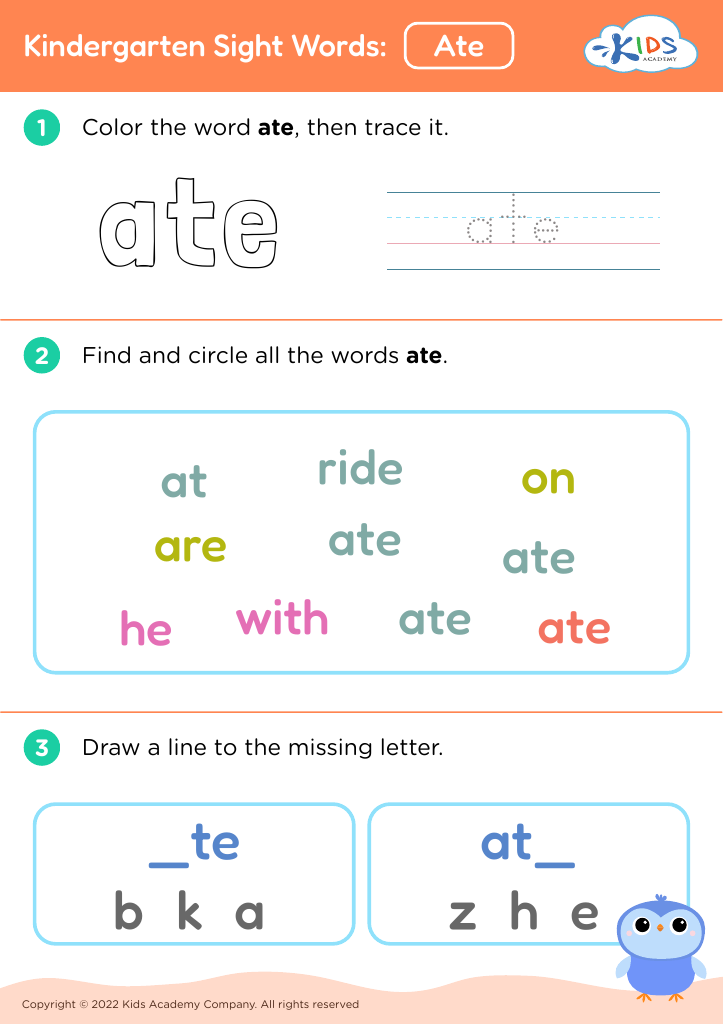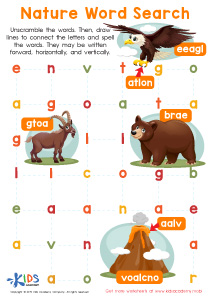Develop critical thinking Sight Words Worksheets for Ages 4-6
3 filtered results
-
From - To
Enhance your child's reading skills with our engaging "Develop Critical Thinking Sight Words Worksheets" designed for ages 4-6. These interactive worksheets not only introduce essential sight words but also encourage kids to think critically about the language they use. By exploring sight words through fun activities, such as puzzles and games, children will develop their vocabulary while honing their analytical skills. Perfect for both home and classroom settings, these worksheets foster a love for reading and inspire young minds. Equip your preschooler with the tools they need for literacy success and critical thinking. Explore our collection today!
Developing critical thinking skills and introducing sight words for children ages 4-6 is crucial for fostering cognitive growth and literacy skills. At this early age, children's brains are highly impressionable, making it an ideal time to nurture critical thinking, which encompasses skills such as problem-solving, analysis, and decision-making. By engaging children in activities that encourage questioning and exploring, parents and teachers can help them to learn how to think rather than what to think.
Sight words play an essential role in this process. These are words that frequently appear in text and can’t always be sounded out phonetically. Mastery of sight words aids fluency in reading, enabling children to focus on comprehension and critical thinking instead of decoding every single word.
When children feel confident in their reading abilities, they are more likely to engage with texts critically, ask questions, and express opinions about what they read. Additionally, these skills foster a love of learning and curiosity about the world around them, traits that benefit children throughout their educational journey and beyond. By prioritizing critical thinking and sight word recognition, parents and teachers lay a strong foundation for future academic success and lifelong learning.




















